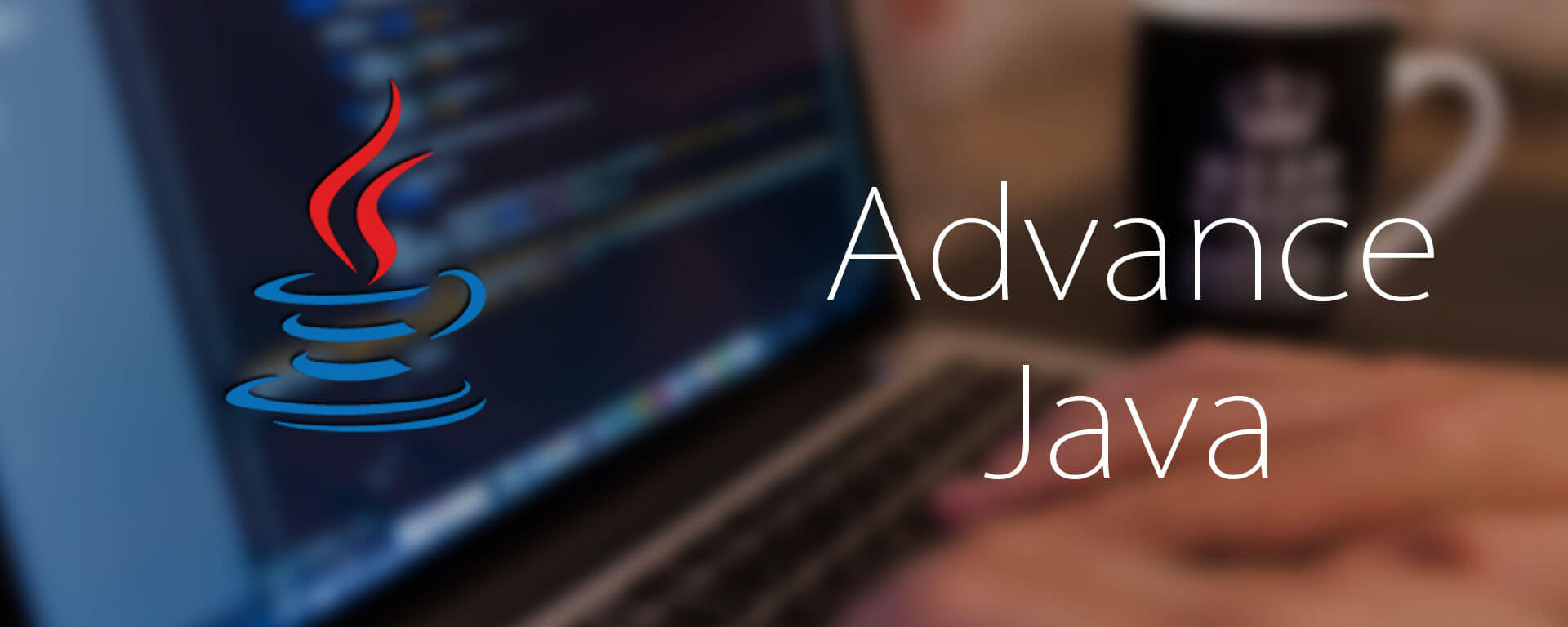Syllabus - Important Facts On - Advance Java
Advance Java refers to the set of Java programming concepts that extend beyond the core Java basics. It includes various advanced topics and frameworks that are essential for building complex, enterprise-level applications. Advance Java focuses on web development, network programming, database interaction, and other backend processes that are crucial for large-scale applications.
Module 1 – JDBC In DETAILS
- JDBC API
- Different drivers and its use
- Use of Type-4 driver
- Statement interface
- Use of PreparedStatement
- Use of CallableStatement
- Properties of ResultSet
- Working with Batch
- ResultSetMetadata & DatabaseMetadata
- Working with BLOB & CLOB
- Transaction in JDBC
- Connecting to a Database
- Handling SQL Exceptions
- Database Connection Pooling
- Executing SQL Queries
Module 2 – ENTERPRISE SERVLET
- Introduction to Web Server and web Container
- Server Configuration
- Servlet API
- Servlet, GenericServlet, HttpServlet
- Servlet in Webserver
- Servlet Configuration
- Servlet Lifecycle
- Request & Response
- Servlet Context
- SessionTracking [Hidden Field, URL rewriting, Cookies, Session]
- Servlet collaboration
- Introducing Filters, Listeners & Wrapper
- Servlet 2.5 Features
- Security In web application
Module 3 – ENTERPRISE JSP
- JSP Architecture
- JSP Directives, Scripting Elements, Actions
- Implicit Objects
- JSP Action tags and Java Beans
- Scope
- JSP Custom Defined Tags
- Internationalization
- JSP Expression Language (EL)
- Introducing JSP Standard Tag Library (JSTL)
- Web Design Patterns
- Report Generation In JSP
- File Uploading In JSP
- Error Handling in JSP
- Custom Tag Libraries
- Session Management in JSP
Module 4 – Demo project using SERVLET & JSP RMI
- RMI Architecture
- Programming Using RMI
- Setting Up RMI Environment
- Creating RMI Interfaces
- Implementing RMI Servers
- Implementing RMI Clients
- Registering RMI Services
- Accessing RMI Services
- Handling RMI Exceptions
- Debugging RMI Applications
- Integration of RMI with Servlets
- Integration of RMI with JSP
- Security Considerations in RMI
- Using RMI for Distributed Computing
- Performance Optimization in RMI
- Best Practices for RMI Development
- Case Study of RMI in Real-World Applications
Module 5 – ENTERPRISE JAVA BEAN
- Why EJB
- EJB Architecture
- Enterprise Java Beans 2.X (EJB)
- Overview of EJB Container
- EJB In BIG Picture
- Different Type Of EJB Component
- Elements Of EJB
- JNDI & LDAP
- Session Bean and its Architecture
- EJB 3.0, EJB 3.0 Architecture, EJB 3.0 Annotations
- JPA
- Java Transaction Service (JTS)/ Java Transaction API (JTA)
- Java Naming & Directory Interface (JNDI)
- Java Authentication and Authorization Service (JAAS)
- Java Messaging Service (JMS 1.1)
- Java Mail 1.3
Module 6 – Servers & IDE
- BEA Weblogic 10, IBM Websphere 6.0, JBoss 4.0, Sun Enterprise Application Server
- Integrated Development Environment (IDE): MyEclipse, NetBeans, WSAD, Intelli-J, Weblogic Workshop
- Setting Up BEA Weblogic Server
- Configuring IBM Websphere Server
- Managing JBoss Application Server
- Deploying Applications on Sun Enterprise Application Server
- Comparing Different Application Servers
- IDE Configuration and Setup
- Debugging Applications in MyEclipse
- Version Control Integration in NetBeans
- Performance Tuning in Weblogic Workshop
- Using Plugins and Extensions in IDEs
- Automating Build Processes in IDEs
- Testing and Deployment Tools in IDEs
Module 7 – HTML, JAVA SCRIPT
- Introduction to HTML
- HTML5 Elements and Attributes
- Creating Forms in HTML
- HTML5 APIs
- Introduction to JavaScript
- JavaScript Syntax and Variables
- Functions and Scope in JavaScript
- JavaScript DOM Manipulation
